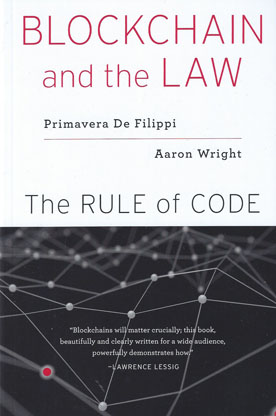We will be closed from 5pm Thursday 17th April for the Easter Bank Holidays, re-opening at 8.30am on Tuesday 22nd April. Any orders placed during this period will be processed when we re-open.

Bitcoin has been hailed as an Internet marvel and decried as the preferred transaction vehicle for criminals. It has left nearly everyone without a computer science degree confused: how do you "mine" money from ones and zeros?
The answer lies in a technology called blockchain. A general-purpose tool for creating secure, decentralized, peer-to-peer applications, blockchain technology has been compared to the Internet in both form and impact. Blockchains are being used to create "smart contracts," to expedite payments, to make financial instruments, to organize the exchange of data and information, and to facilitate interactions between humans and machines.
But by cutting out the middlemen, they run the risk of undermining governmental authorities' ability to supervise activities in banking, commerce, and the law. As this essential book makes clear, the technology cannot be harnessed productively without new rules and new approaches to legal thinking.
Primavera De Filippi and Aaron Wright acknowledge this potential and urge the law to catch up. That is because disintermediation—a blockchain’s greatest asset—subverts critical regulation. By cutting out middlemen, such as large online operators and multinational corporations, blockchains run the risk of undermining the capacity of governmental authorities to supervise activities in banking, commerce, law, and other vital areas.
De Filippi and Wright welcome the new possibilities inherent in blockchains. But as Blockchain and the Law makes clear, the technology cannot be harnessed productively without new rules and new approaches to legal thinking.